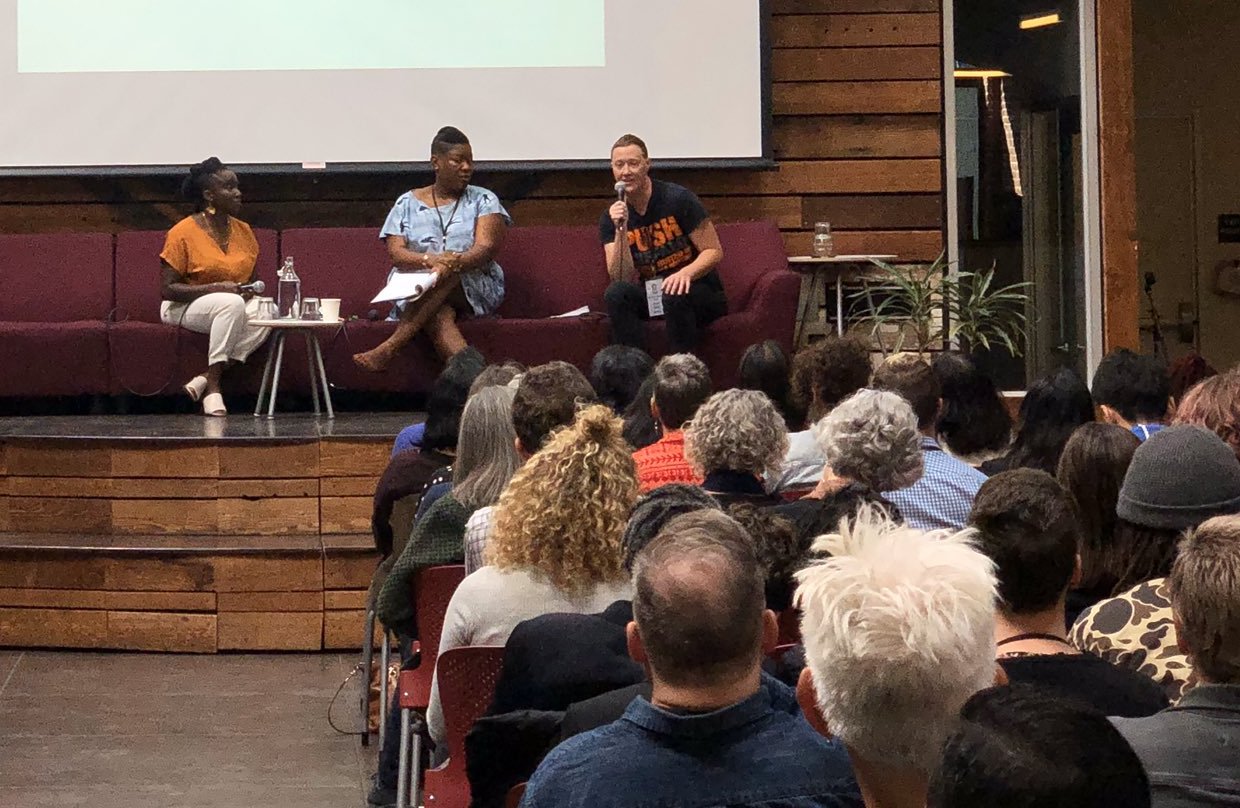ImpactAlpha 24, 2019 – The New York Times columnist David Brooks wants to build a national movement of social fabric “weavers.” Oakland’s already on the case.
Like many cities, it is grappling with racial inequality, rapid gentrification and a dire housing crisis. Oakland also has a deeply engaged community of activists building new models to reclaim their stolen future. They are channeling capital to African American entrepreneurs, preserving land for community use and putting power in community hands.
“When the first money comes from the community, the community sets the agenda and the priorities,” Ed Whitfield of the Fund for Democratic Communities told the community capital, or COCAP, conference at Impact Hub Oakland.
Some initiatives to watch:
Inclusive Opportunity Zones
The East Bay Community Foundation, working with the East Oakland Black Cultural Zone and Community Vision, is developing an Opportunity Zone fund that would prioritize the needs of Oakland’s most vulnerable residents. A community advisory board would vet projects.
Friends and family funding
The Runway Project, a black women-led loan fund, launched two years ago to fill the gap for ‘friends and family’ funding for entrepreneurs of color (see, “‘Believe in you’ money for black entrepreneurs”).
Runway has financed 26 entrepreneurs in Oakland and is bringing the model to Boston and other cities. “We’re building on the deep relationships that exist in Oakland,” says Runway’s Nina Robinson. “The trust is already there.”
Grassroots-informed lending
The REAL People’s Fund will complement Runway with bigger loans to a wider group of entrepreneurs of color. Five local grassroots organizing groups, including Restore Oakland and Communities for a Better Environment, are planning to raise $10 million, including $1 million in “community notes.” Representatives from the grassroots groups set impact objectives.
The goal is “co-equal decision making,” says Community Vision’s Nate Schaffran.
Community-owned land
The East Bay Permanent Real Estate Cooperative is a nonprofit housing developer led by Noni Session, a third-generation African-American Oaklander. The group raises money from the community through $1,000 shares, as well as philanthropic grants, to buy property and take it off the speculative market.











